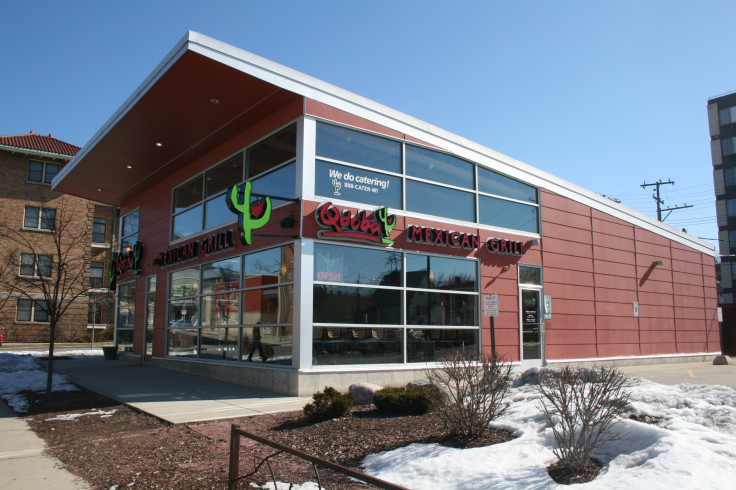Colorado Typhoid Fever Cases Linked To Qdoba Mexican Restaurant — Risk To General Public Is 'Very, Very Low'

This Tuesday, Colorado health officials confirmed that an isolated outbreak of the rare foodborne disease typhoid fever in Firestone, Colo., this August was caused by an employee of the Mexican grill chain restaurant, Qdoba.
The employee in question had unknowingly carried the bacteria responsible for typhoid, Salmonella typhi, while handling food and infected at least three customers, leaving two hospitalized. All three individuals have since recovered. The employee, who reported no symptoms and is no longer working at that Qdoba restaurant, has been treated, and no new cases have emerged.
“Typhoid fever is very rare,” said Dr. Mark E. Wallace, executive director of the Weld County Health Department, in a statement. “The good news is the illness is treatable with antibiotics. Simply having eaten at the restaurant is not a reason to see your health care provider. Only those currently exhibiting symptoms should contact their health care provider.” These symptoms include a prolonged fever as high as 104 degrees, headache, and stomach pains. In cases of untreated typhoid, one-third of victims begin to have rose-colored rashes around the chest and abdomen and there can be severe dehydration and even delirium — without proper antibiotic treatment and hydration, the disease is fatal up to 26 percent of the time.
An Old Foe
Typhoid fever was a familiar and feared disease throughout much of human history, but the advent of better sanitation practices and the discovery of effective medications in the 20th century largely ended its reign in the developed world. More impoverished areas, particularly India, haven’t been so fortunate, and it’s estimated there are 22 million cases and 200,000 deaths related to typhoid annually, according to the Centers for Disease Control and Prevention (a nearly identical disease, paratyphoid fever, is responsible for six million illnesses annually). This is despite the fact that there are two vaccines for typhoid available today, which can reduce the chances of infection by 50 to 80 percent.
In the United States, there are less than 6,000 cases of typhoid a year, with the majority coming from people traveling internationally (the vaccine is recommended for anyone traveling to typhoid-dense countries). According to Weld County health officials, there are an average of five typhoid cases in Colorado every year. “The risks to the general public are very, very low,” Weld County Department of Public Health spokesman Eric Aakko told FOX31 Denver.
Nowadays, typhoid is perhaps most synonymous with the infamous Mary Mallon, better known as “Typhoid Mary.” In the early 20th century, Mallon became the first known asymptomatic carrier of typhoid in the United States. Working primarily as a cook for wealthy families, she infected at least 122 people, leaving five dead, even after drastic efforts to isolate her from the general population were made. Without the existence of antibiotics, Mallon spent more than a quarter-century of her life in quarantine, the subject of widespread ostracization. She ultimately died alone and unable to walk in 1938, Salmonella typhi still festering in her gallbladder.
Thankfully, that’s a story that won’t be repeating itself here.



























